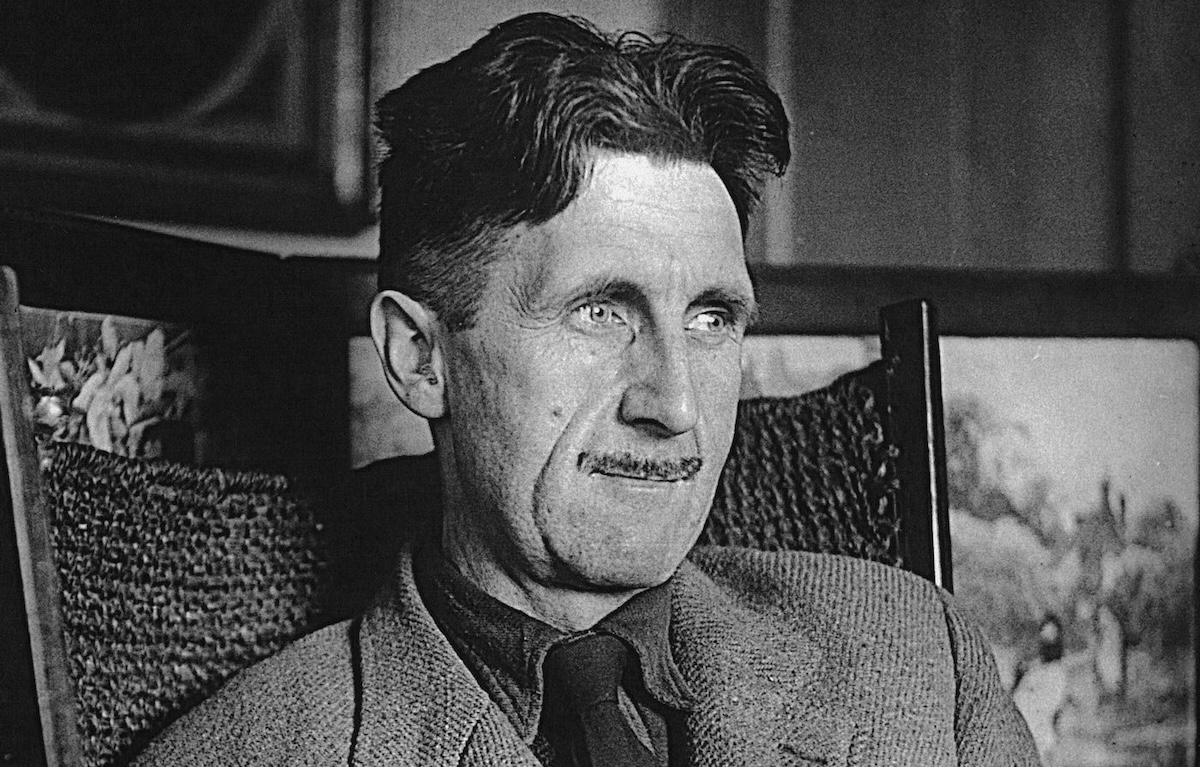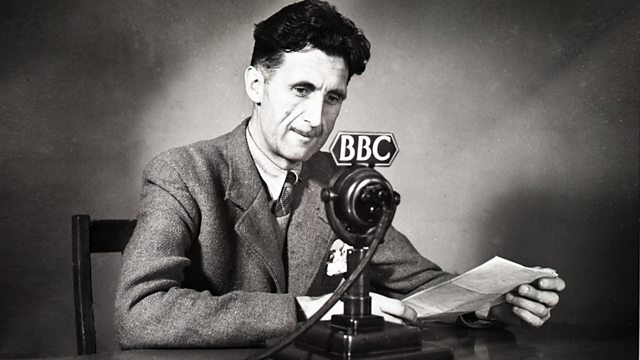George Orwell: The Writer Who Fought for Social Justice
 George Orwell, born Eric Arthur Blair on June 25, 1903, in Motihari, British India, was an English novelist, essayist, journalist, and critic. He is best known for his works "Nineteen Eighty-Four" and "Animal Farm," which have become iconic examples of dystopian fiction and political satire. Orwell's writing is characterized by its clarity, honesty, and commitment to social justice, making him one of the most influential literary figures of the 20th century.
George Orwell, born Eric Arthur Blair on June 25, 1903, in Motihari, British India, was an English novelist, essayist, journalist, and critic. He is best known for his works "Nineteen Eighty-Four" and "Animal Farm," which have become iconic examples of dystopian fiction and political satire. Orwell's writing is characterized by its clarity, honesty, and commitment to social justice, making him one of the most influential literary figures of the 20th century.
Orwell's early life was marked by his family's colonial background and his own experiences of poverty and social inequality. His father, Richard Walmesley Blair, worked as a civil servant in the Indian Opium Department, while his mother, Ida Mabel Blair, came from a family of lower-middle-class origins. Orwell's experiences of imperialism and social class dynamics in British India would later influence his writing and political outlook. After returning to England in 1904, Orwell spent his formative years in Henley-on-Thames and then attended St. Cyprian's School in Eastbourne on a scholarship. His experiences at St. Cyprian's, where he endured bullying and social ostracism, left a lasting impression on him and shaped his views on authority, injustice, and the abuse of power.
After returning to England in 1904, Orwell spent his formative years in Henley-on-Thames and then attended St. Cyprian's School in Eastbourne on a scholarship. His experiences at St. Cyprian's, where he endured bullying and social ostracism, left a lasting impression on him and shaped his views on authority, injustice, and the abuse of power.
Orwell's literary career began in the late 1920s when he moved to London and started working as a writer and journalist. He adopted the pen name "George Orwell" to avoid embarrassing his family with his radical political views. Orwell's early writing focused on his observations of working-class life and his experiences as a tramp and casual laborer, which he documented in his first book, "Down and Out in Paris and London" (1933).
Throughout the 1930s, Orwell became increasingly involved in leftist politics and social activism. He traveled to Spain to fight in the Spanish Civil War as a member of the Workers' Party of Marxist Unification (POUM), an anti-Stalinist militia. Orwell's experiences in Spain, where he witnessed firsthand the brutality of totalitarianism and the betrayal of the socialist cause by the Soviet-backed Communist Party, profoundly influenced his political beliefs and his later writings. Orwell's most famous works, "Animal Farm" (1945) and "Nineteen Eighty-Four" (1949), were written during and after World War II and reflect his growing disillusionment with totalitarianism, propaganda, and the erosion of individual freedom. "Animal Farm" is a satirical allegory that critiques the corruption and hypocrisy of the Soviet regime under Joseph Stalin, while "Nineteen Eighty-Four" depicts a dystopian future where totalitarianism, surveillance, and thought control have extinguished all semblance of freedom and truth.
Orwell's most famous works, "Animal Farm" (1945) and "Nineteen Eighty-Four" (1949), were written during and after World War II and reflect his growing disillusionment with totalitarianism, propaganda, and the erosion of individual freedom. "Animal Farm" is a satirical allegory that critiques the corruption and hypocrisy of the Soviet regime under Joseph Stalin, while "Nineteen Eighty-Four" depicts a dystopian future where totalitarianism, surveillance, and thought control have extinguished all semblance of freedom and truth.
Both "Animal Farm" and "Nineteen Eighty-Four" have become literary classics, revered for their prescient warnings about the dangers of authoritarianism and the manipulation of language and truth. Orwell's concept of "Big Brother," the all-seeing and all-powerful dictator in "Nineteen Eighty-Four," has entered the cultural lexicon as a symbol of oppressive government surveillance and control. In addition to his novels, Orwell was a prolific essayist and journalist, contributing to numerous newspapers, magazines, and literary journals. His essays cover a wide range of topics, including politics, literature, language, culture, and social justice. Orwell's essays are characterized by their clarity, intelligence, and moral courage, as he fearlessly confronts taboo subjects and challenges prevailing orthodoxies.
In addition to his novels, Orwell was a prolific essayist and journalist, contributing to numerous newspapers, magazines, and literary journals. His essays cover a wide range of topics, including politics, literature, language, culture, and social justice. Orwell's essays are characterized by their clarity, intelligence, and moral courage, as he fearlessly confronts taboo subjects and challenges prevailing orthodoxies.
One of Orwell's most famous essays is "Politics and the English Language" (1946), in which he criticizes the use of vague and euphemistic language to obscure truth and manipulate public opinion. Orwell argues that clear and precise language is essential for honest communication and democratic discourse, and he offers practical advice for writers to resist the corruption of language by political propaganda.
Orwell's commitment to truth and integrity in writing was reflected in his personal life as well. He was known for his honesty, humility, and integrity, refusing to compromise his principles or censor his opinions, even when it meant risking his reputation and livelihood. Orwell's uncompromising commitment to truth and justice continues to inspire writers, journalists, and activists around the world.
Despite struggling with poor health for much of his life, Orwell remained active as a writer and political commentator until his untimely death from tuberculosis on January 21, 1950, at the age of 46. In the years since his passing, Orwell's works have continued to resonate with readers and thinkers of all backgrounds, inspiring generations of writers, intellectuals, and activists to challenge authority, defend freedom, and speak truth to power.
One of the defining features of George Orwell's writing is his acute awareness of social injustice and his commitment to exposing the realities of oppression and inequality. Throughout his career, Orwell used his platform as a writer to advocate for the marginalized and oppressed, whether it was the working class, colonial subjects, or victims of totalitarian regimes.Orwell's concern for social justice is evident in his non-fiction works, where he often addresses issues such as poverty, imperialism, and the abuse of power. In "The Road to Wigan Pier" (1937), Orwell documents the living conditions of the working class in Northern England and offers a scathing critique of the British class system and the failure of capitalism to address social inequality.
Similarly, in "Shooting an Elephant" (1936), Orwell reflects on his experiences as a colonial police officer in Burma and the moral dilemma he faced when forced to shoot a rogue elephant to satisfy the expectations of the local population. The essay explores themes of imperialism, racism, and the dehumanizing effects of colonialism on both the colonizer and the colonized.
Orwell's commitment to social justice is also evident in his journalism, where he reported on issues such as poverty, unemployment, and homelessness with empathy and compassion. His articles for publications such as "The Tribune" and "The Observer" shed light on the struggles of ordinary people and called attention to the injustices of the social and political system.
In addition to his social conscience, Orwell was also a keen observer of language and its power to shape thought and perception. In his essay "Politics and the English Language," Orwell warns against the use of vague and euphemistic language to obscure truth and manipulate public opinion. He argues that clear and precise language is essential for honest communication and democratic discourse, and he offers practical advice for writers to resist the corruption of language by political propaganda. Orwell's insights into the manipulation of language and truth are central to his dystopian novels, "Animal Farm" and "Nineteen Eighty-Four," where he explores the ways in which totalitarian regimes use propaganda, censorship, and surveillance to control their citizens and maintain power. Through these works, Orwell warns against the dangers of totalitarianism and the erosion of individual freedom, while advocating for the importance of critical thinking, skepticism, and resistance to authority.
Orwell's insights into the manipulation of language and truth are central to his dystopian novels, "Animal Farm" and "Nineteen Eighty-Four," where he explores the ways in which totalitarian regimes use propaganda, censorship, and surveillance to control their citizens and maintain power. Through these works, Orwell warns against the dangers of totalitarianism and the erosion of individual freedom, while advocating for the importance of critical thinking, skepticism, and resistance to authority.
Orwell's legacy as a writer and social critic extends far beyond his own lifetime. His works continue to be studied, debated, and celebrated for their relevance to contemporary issues and their enduring insights into the human condition. Orwell's commitment to truth, justice, and individual freedom serves as an inspiration to writers, journalists, and activists around the world, reminding us of the importance of speaking truth to power and defending the rights of the marginalized and oppressed. In conclusion, George Orwell's life and work exemplify the power of literature to expose injustice, challenge authority, and inspire social change. Through his novels, essays, and journalism, Orwell shed light on the realities of oppression and inequality, while advocating for the values of truth, integrity, and individual freedom. Orwell's legacy as a writer, thinker, and social critic continues to resonate with readers and thinkers of all backgrounds, inspiring us to confront injustice, defend democracy, and strive for a more just and equitable world.
In conclusion, George Orwell's life and work exemplify the power of literature to expose injustice, challenge authority, and inspire social change. Through his novels, essays, and journalism, Orwell shed light on the realities of oppression and inequality, while advocating for the values of truth, integrity, and individual freedom. Orwell's legacy as a writer, thinker, and social critic continues to resonate with readers and thinkers of all backgrounds, inspiring us to confront injustice, defend democracy, and strive for a more just and equitable world.




































